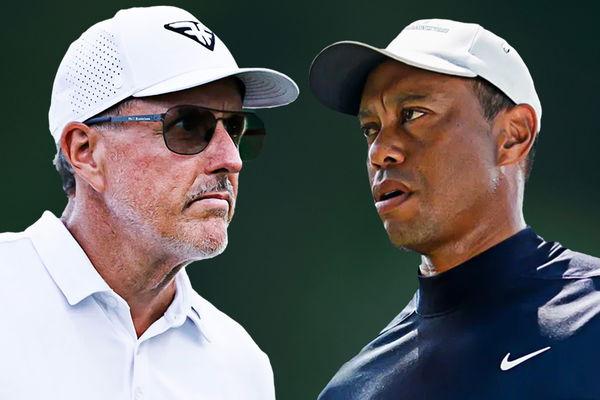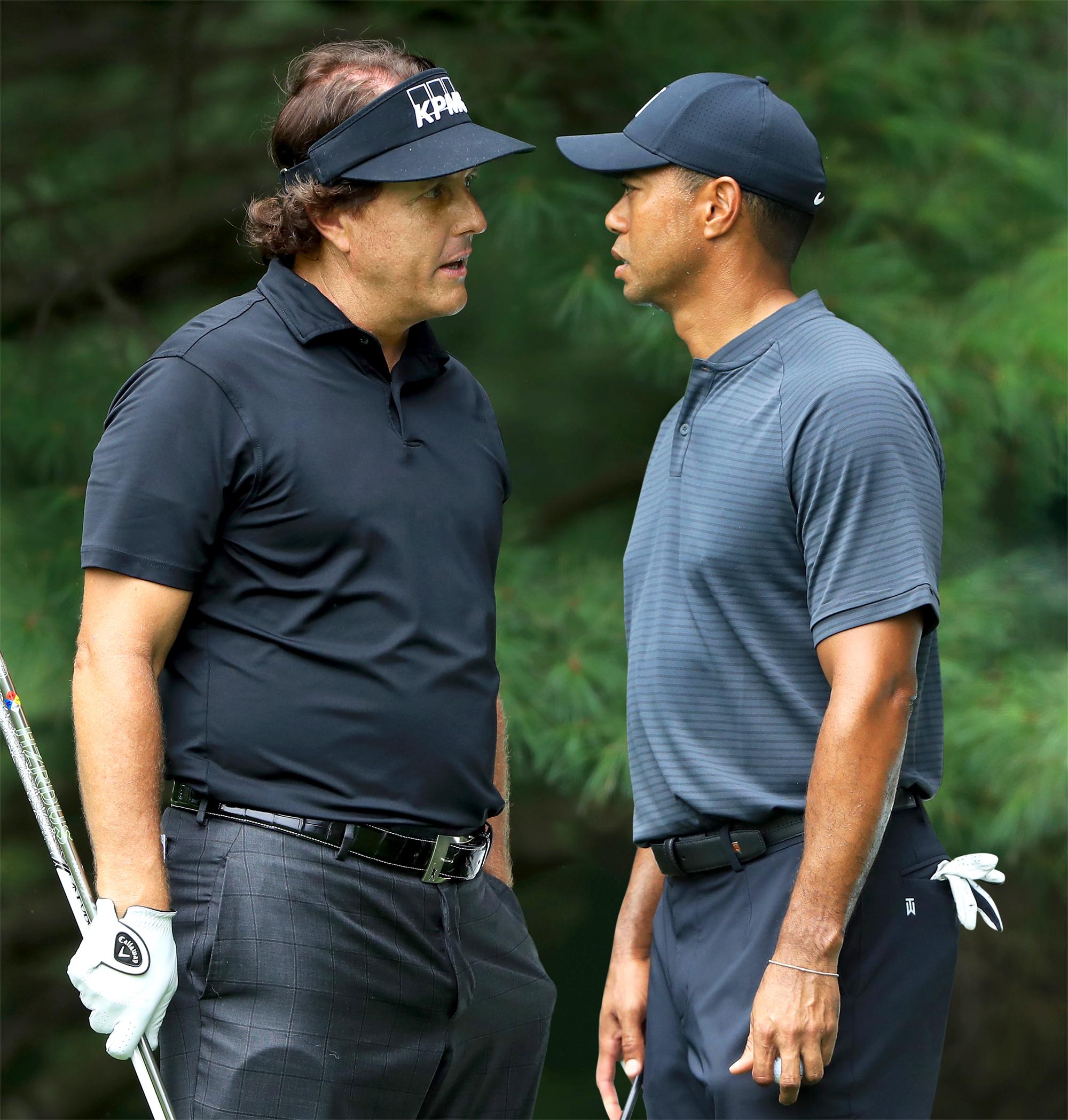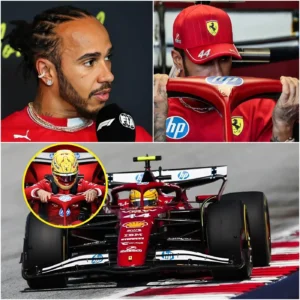Tiger Woods ‘Broke’ Phil Mickelson With 7-Word Shade After Their Rivalry Reached Its Peak at Augusta

Phil Mickelson was known for his trash talk and mind games, but on April 8, 2001, he got a taste of his own medicine—and it was bitter. Here’s the thing about mental warfare in golf: it’s all fun and games until someone like Tiger Woods decides to play along, and when that happens, you better be ready for what’s coming. The lefty had built his reputation as one of golf’s greatest needle artists. Practice rounds with Mickelson were legendary for their eye-popping wagers and classic one-liners.
Meanwhile, Tiger Woods typically relied on silent intimidation and surgical precision on the course. Their contrasting styles created natural tension whenever they were paired together. This rivalry had deeper roots than most fans realized. Back in 1998, Mickelson had humiliated Tiger after winning a $500 practice round bet by placing photocopied $100 bills in Tiger’s locker with a mocking note. The prank created tension between the legends that simmered for three years.

That animosity would finally explode at the 2001 Masters. Woods carried the unprecedented pressure of completing the “Tiger Slam” after capturing the final three majors of 2000. The full story of what happened next remained largely untold until Steve Williams, Tiger’s longtime caddie, revealed the shocking details on The Yardage Book NZ podcast.
According to Williams, the pivotal moment arrived on Sunday’s back nine at Augusta National’s 13th hole. Woods and Phil Mickelson entered the final round with Tiger holding just a one-shot lead. Williams explained how Tiger had spent over a year obsessing over one specific shot for this hole. “Tiger had been practicing the shot all year for the 13th hole… he hated the 13th hole,” Williams revealed on the podcast. “He was practicing this massive sweeping hook… he practiced it every single day.”

The caddie described how Tiger had avoided using this shot for three days. “On Thursday he didn’t hit it, Friday didn’t hit it, Saturday didn’t hit it, and it came to Sunday I said ‘Tiger it’s time for that shot here.’ He said ‘Yeah you’re right Stevie.’”
Mickelson stepped up first and launched a beautiful drive around the dogleg. Then Woods stepped to the tee with his 3-wood. He unleashed the shot he’d obsessed over, that sweeping hook sailing past Mickelson’s drive by thirty yards. The galleries erupted as the ball settled well ahead of Phil’s position.
Williams sensed the shift immediately as they watched Tiger’s ball settle well beyond Phil’s position. “I could sort of sense that Mickelson was feeling a bit dejected,” the caddie recalled on the podcast. “He’s just hit the best drive that he can, and then Tiger’s hit a 3-wood and whipped it by him.” The psychological impact was immediate—Phil had unleashed his driver with perfect execution, only to watch Tiger outdrive him with a lesser club.
As they walked up the fairway, Mickelson couldn’t process what had just happened. Still trying to understand how Tiger’s 3-wood had demolished his best drive, he turned to Woods and asked, “Do you always hit a 3-wood that far?”
Woods delivered his devastating response: “Next time take the headcover off it.”
The gallery erupted in laughter. Williams called it “one of the best lines I’ve ever heard” during the podcast. This moment was unprecedented in golf’s traditionally respectful culture as direct verbal attacks were virtually unheard of among professionals.
The comment completely destroyed Mickelson’s confidence. “That broke him,” Williams explained on the podcast. Mickelson played the remaining five holes in even par while Woods pulled away to win by two shots over David Duval and three over Phil.
How this shaped Tiger Woods and Phil Mickelson’s rivalry
This victory fundamentally transformed their competitive dynamic. Woods had proven he could dominate Mickelson mentally, not just physically. The lesson resonated throughout their careers, as Tiger consistently found ways to gain an advantage over his greatest rival.
In today’s social media environment, this moment would have gone viral instantly. Current players could learn valuable lessons about timing and delivery from this masterclass in mental warfare.
Their relationship evolved dramatically over the following decades. The initial tension gradually thawed into grudging respect. However, Woods never forgot the importance of maintaining his mental edge over competitors, especially in crucial moments
Mickelson would eventually capture six major championships, including three Masters titles. Yet he never quite escaped Tiger’s shadow during their prime years. Their head-to-head record when paired together shows Woods outplayed Mickelson only 18 times to Phil’s 15, but Tiger consistently delivered when the stakes were highest.
The seven-word jab became legendary among golf fans. It perfectly captured Tiger’s ability to combine supreme skill with devastating mental warfare. That April afternoon at Augusta established the framework for golf’s most compelling rivalry






